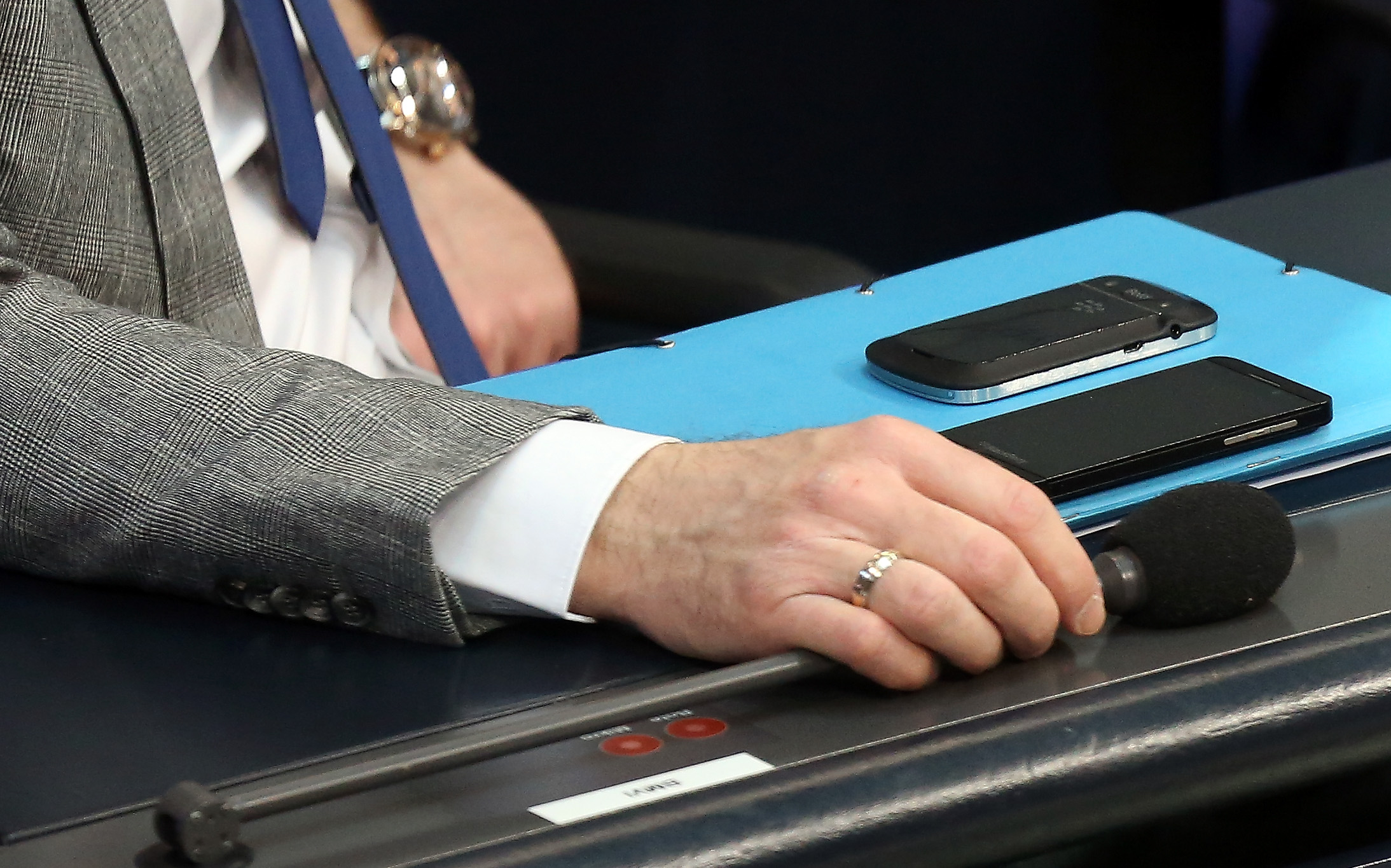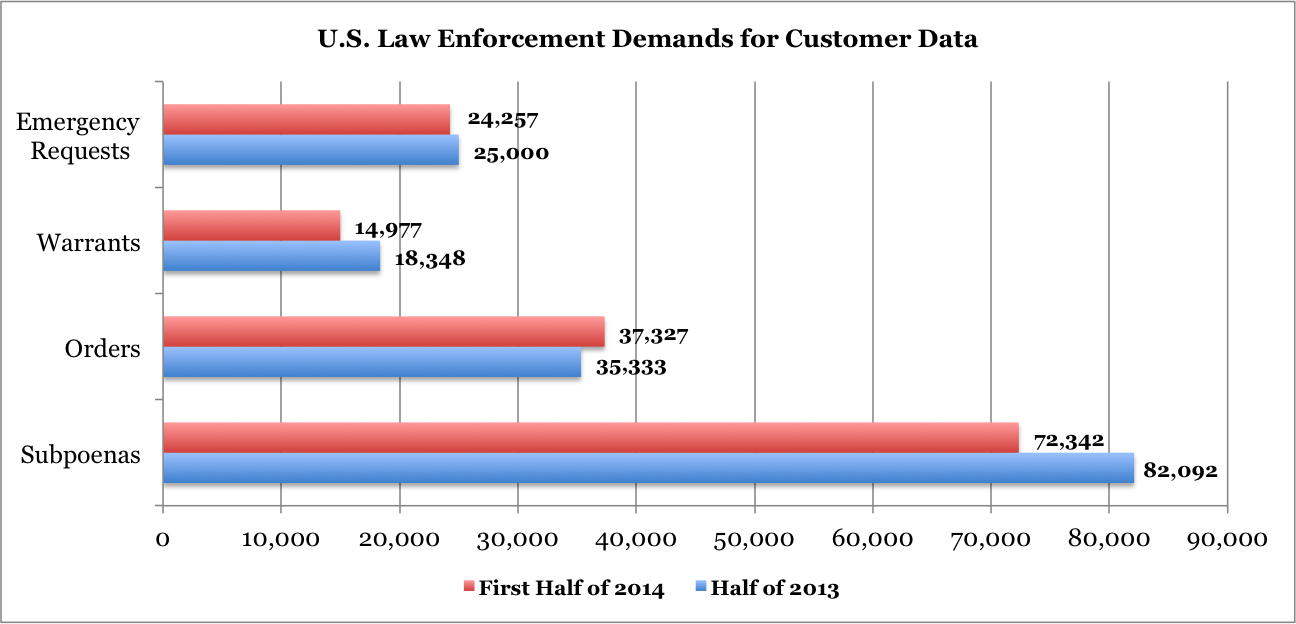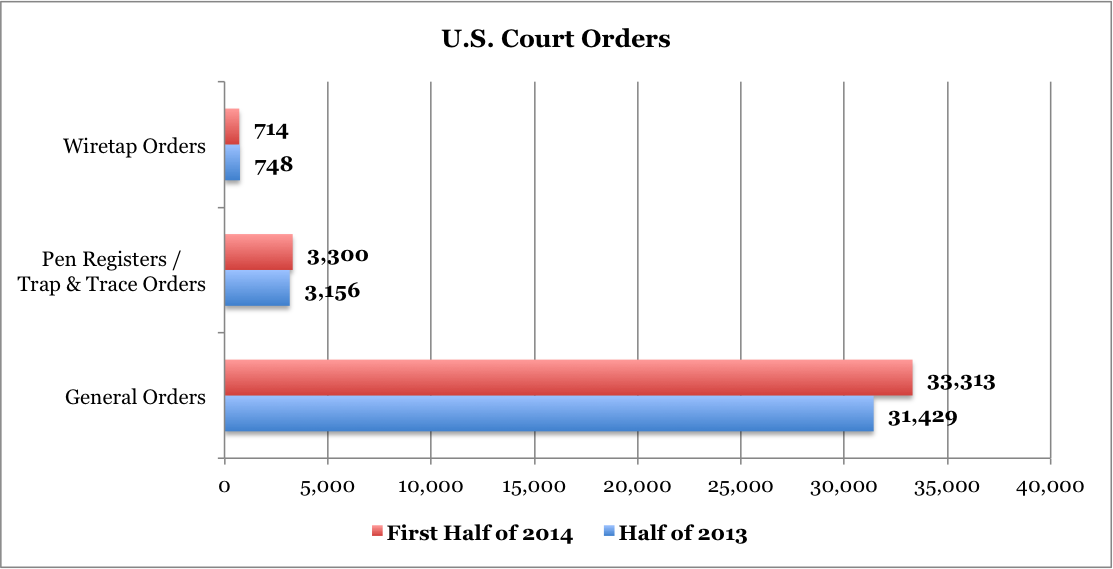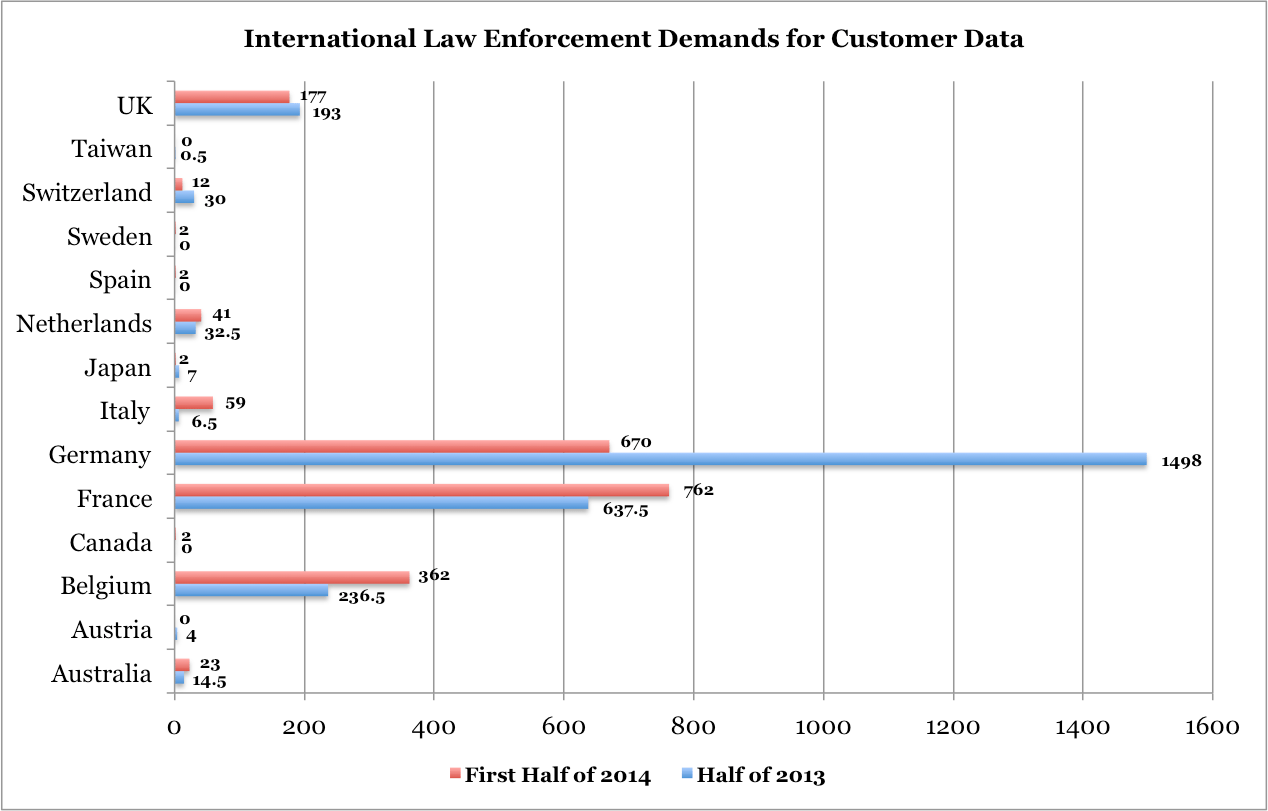
Verizon received 148,903 U.S. government requests for customer information in the first half of 2014, slightly less than the 160,733 requests from half of 2013, according to Verizon’s second transparency report.
The report lists the number of subpoenas, orders, warrants and emergency requests Verizon received from Jan. 1 to June 30, and are on par to roughly meet by the year’s end the 321,545 requests Verizon received in 2013. Arriving amidst heavy debate on NSA surveillance and a NSA reform bill passed by the House in May, the report suggests that law enforcement requests for customer data have remained relatively steady. Verizon notes that the “vast majority of these various types of demands relate to our consumer customers,” not enterprise customers.
While figures for emergency requests (e.g. during 9-1-1 calls), warrants (e.g. for crime investigation) and subpoenas (e.g. for seeking specific customer information) are lower than those of 2013, court orders have increased. (Note: Since Verizon’s first transparency report listed the full-year figures, Verizon computes half-year 2013 data by dividing previous figures in half.)

Verizon for the first time provided specifics about the number of customers affected by government requests: the 72,342 subpoenas received in the first half of 2014 sought data for 132,499 people, for an average of 1.8 people per subpoena.
Orders are broken down into wiretap (accessing content of communication), pen register (phone numbers of outgoing calls), trap & trace (phone numbers of incoming calls) and general (all other orders). While wiretap orders have fallen slightly, all others have increased.

Verizon also reports the law enforcement data demands for customers outside of the United States. Requests in Germany have significantly fallen, a statistic arriving on the heels of the German government terminating a contract with Verizon in June due to fears of U.S. spying. Italy, France and Belgium saw the greatest increases, despite their condemnations of U.S. digital surveillance.

Data on national security demands — which include NSA requests under the Foreign Intelligence Surveillance Act — are largely not reported due to legal restrictions. Verizon disclosed broad ranges, reporting that in 2013, there were 0 to 6,000 national security demands seeking information about 11,000 to 17,000 people.
More Must-Reads From TIME
- The 100 Most Influential People of 2024
- The Revolution of Yulia Navalnaya
- 6 Compliments That Land Every Time
- What's the Deal With the Bitcoin Halving?
- If You're Dating Right Now , You're Brave: Column
- The AI That Could Heal a Divided Internet
- Fallout Is a Brilliant Model for the Future of Video Game Adaptations
- Want Weekly Recs on What to Watch, Read, and More? Sign Up for Worth Your Time
Contact us at letters@time.com